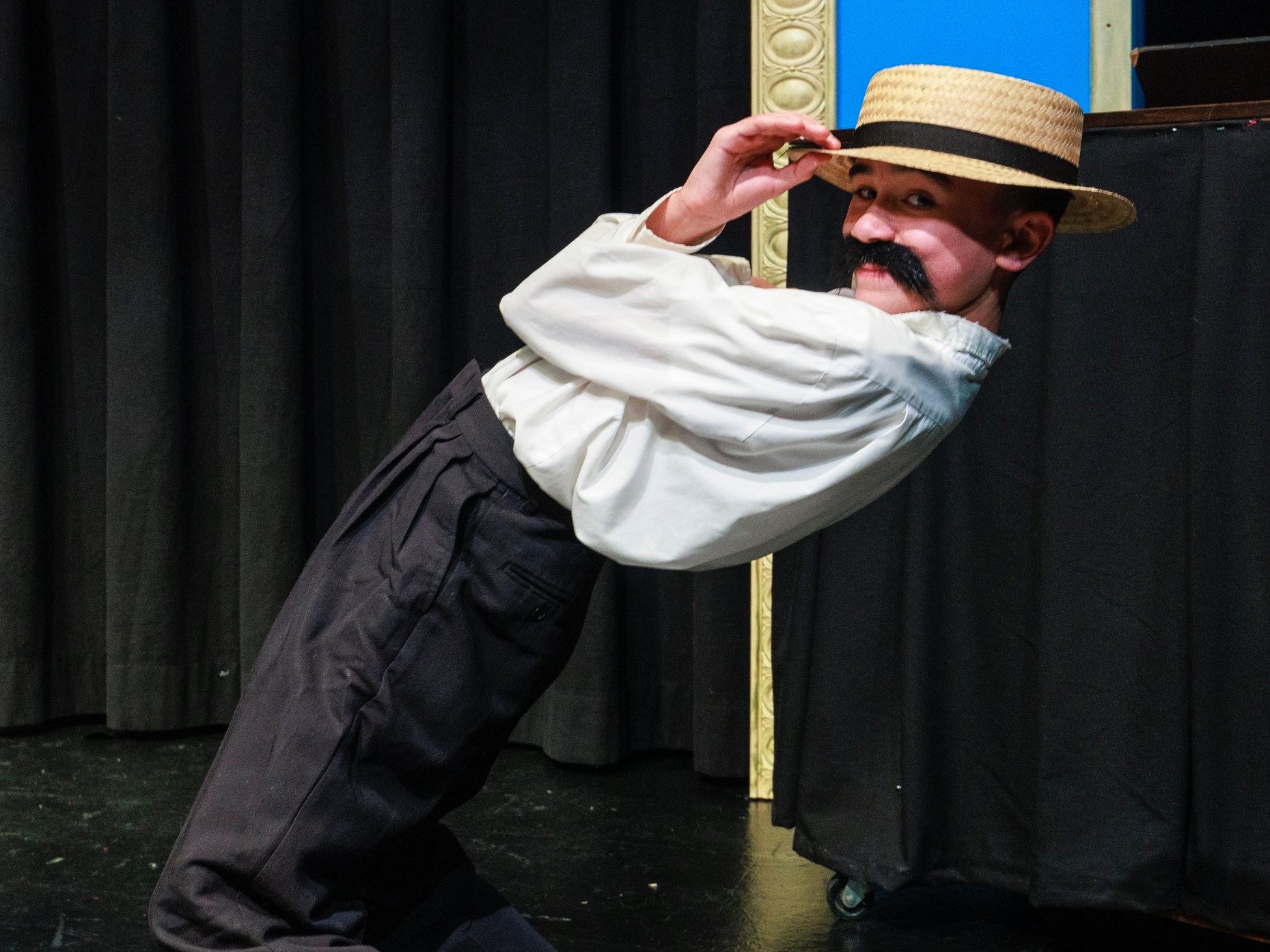Drama Studio’s PLACES!: A Place for Everyone
“PLACES!” refers to the call before the start of the play where the actors are called to their backstage places. When the stage manager calls “Places” all actors must respond “Thank you, places!”
This code, one of many in theater, reminds all actors that listening, response, action and respect all must happen with each interaction. New actors quickly learn these codes, and the sense of belonging that they are now “in the know” is palpable.
More importantly, it is an indicator of their pride that they are rising to the level of professionalism needed to do the work. So many children encounter low expectations, and belonging to a theater conservatory is often their first experience with just how far they can and do rise to meet high expectations of peers, staff and finally of themselves.
Unlocking the power of theater conservatory training for ALL Springfield youth.
For Drama Studio, PLACES! represents the sense of place, a vital “third space” community that Drama Studio provides. To students, the place of Drama Studio is a sanctuary where they feel safe, supported, and free. It is also a platform for young artists who want to continue into productive adult lives in the vibrant community of dramatic arts. To us at Drama Studio, “PLACES” represents our core mission that “There is a place for you at Drama Studio.” There is a place for all Springfield youth at Drama Studio to access the power of conservatory theater in their lives.
The PLACES! Project focuses on removing barriers that keep many Springfield youth from accessing the Drama Studio community and the sanctuary and platform it provides.
The first phase focuses on:
Supported, Full Access to the Conservatory Program: Ensure that the Drama Studio Conservatory program is accessible to the Springfield youth who would most benefit by removing financial barriers and providing dependable transportation.
Vocational Training in Technical Theater: Build a strategic plan and hire staff to develop a vocational training program in technical theater at the Drama Studio.
Supported Full Access to the Conservatory Program
Why is it needed?
There is research linking the impact of arts (visual, music, drama) education onimproving students’ standardized writing, reducing disciplinary infractions, increasing student compassion, and increasing school engagement. Studies have shown dramaeducation is effective for teaching social, emotional, and physical developmentwhich all youth need. But access to this resource is out of reach for many of Springfield’s youth. Youth from families with income under $100,000 are half as likely to participate in arts education outside of school.
Those same groups are also less likely to have arts education in school. Studies have found that urban families are prevented from accessing arts programs due to high cost and lack of transportation. These families need greater support to access the full benefits of programs like the Drama Studio.
How would PLACES! provide it?
The PLACES! Project would create a full access program in partnership with Springfield schools. The Drama Studio would partner with school and City Connects counselors to identify students who would most benefit from enrollment in our programs. This requires educating the educators that it is not only the “theater kids” that need Drama Studio, but often the ones that are isolated, the disconnected, the anxious, or the ones that only come alive with writing. These students would receive full scholarships and, more importantly, safe, and reliable transportation support. This combination of tuition and transportation support would give these students true access to the program, which a scholarship alone can’t give.
Vocational Training in Technical Theater
Why is it needed?
We need to address the barrier to technical theater training as a career path that faces Springfield students. Reduced access to an entire vocational path is an incredible barrier to those students who would find self-actualization in a career that utilizes their gifts and skills. Without addressing that inequity, students often only have awareness of performing careers, and are then excluded from the entire spectrum of technical theater vocations, cutting those technical-minded students off from their community and future career development. Our college bound students have that pathway open to them once they matriculate into college, with all the resources available, but for high school vocational resources there are no pathways into those vital, employable careers. Our college graduates have gone into viable careers instage management, lighting design, sound design, costuming and technical theater, but many Springfield students don’t even have access to information about those pathways.
How would PLACES! provide it?
Drama Studio would expand our current limited internship program for college students. New staff would build relationships with local colleges, universities, and community colleges to develop internship programs. We would expand our college intern program to address the inherent barriers to accessing careers in the arts, arts infused education and psychology, and technical theater. In time this could evolve into classes in costumes, lighting design, sound design, set design, and stage management that would give Springfield youth employable skills andaddress issues of access for local BIPOC and bilingual college aged youth in pursuing those career paths.
A story of the need for PLACES!
The Drama Studio had an open house, attended by families with prospective students. Three neighborhood teens came in, unattended by any guardians. One girl was particularly attentive and listened carefully to the Drama Studio students sharing their experiences of what Drama Studio meant to them. When the three teens left, that girl snuck back in, out of earshot of the other teens, and whispered to me, “I want what they have.” As the other teens re-entered, she fled. A Drama Studio parent, overhearing the conversation, offered to pay for that teen’s tuition on the spot. I contacted the school, the library, but could get no way of contacting that teen. Had we had a stronger presence within the schools, with structures in place for educators to successfully identify teens that need our program, and normalize participation in the arts, we could have increased the chance of that teen enrolling, and give her what she so desperately wanted.
– Amelia Hays-Rivest, Director of Conservatory




